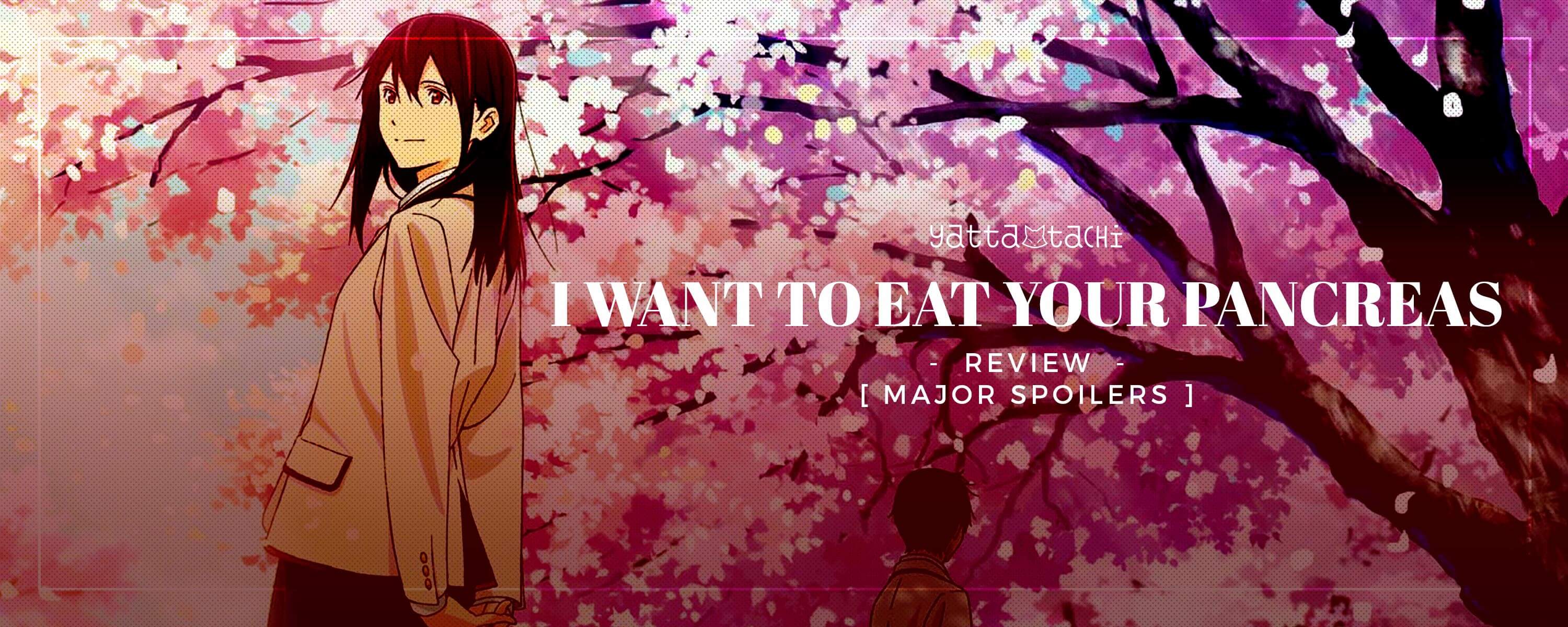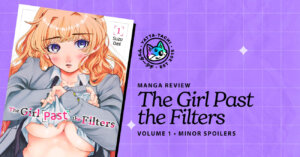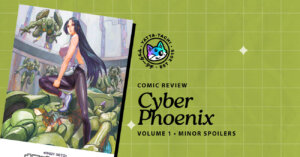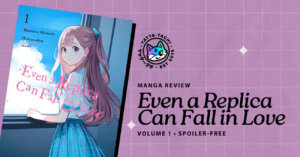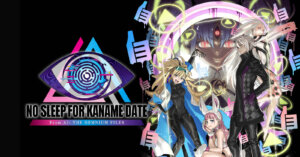A taciturn, unsociable high school boy, at the hospital to get stitches removed, finds a book on the waiting room floor titled “Living with Dying.” Upon opening it, he realizes it’s actually a diary. It belongs to Sakura Yamauchi, a girl his age who goes to his school. She has a terminal pancreatic disease, and likely won’t survive more than a year. She’s keeping the disease a secret from her friends, but since this boy discovered her secret, she decides they already have a connection that she can’t get from her other relationships. She aggressively befriends him and drags him along as she puts her remaining time to the best use she can come up with.
I want to eat your pancreas is directed by Shinichiro Ushijima at Studio VOLN.
The Good Parts
Pancreas is a visually stunning movie. While it may not blow away any sakuga fans looking for circuses, cubes, or squash n’ stretch antics, the character animation in particular is some of the most quietly expressive I’ve seen in some time. There’s a scene near the beginning where the main character and Sakura are walking together. The attention paid to body language makes an otherwise simple scene fascinating to watch. Sakura bounces with every step, her facial expression shifting constantly. The main character walks slowly, hunched and stiff, eyes aimed anywhere but at Sakura. The scene tells you a lot about the characters without saying anything outright. Other highlights include some very carefully animated hair and one of the heaviest cartoon kicks to the crotch I’ve ever seen.
The music, courtesy of Hiroko Sebu, is largely forgettable, but the way it’s used is interesting. The movie is edited like a musical or music video at times. With the music dropping out to emphasize particular lines of dialogues, then starting back up to accompany other lines, the scenes develop a rhythmic quality that propels the movie along.
The Not So Good Parts, Chapter 1: The Dialogue
Let’s get the big one out of the way: the title is eye-catchingly ridiculous, but if it weren’t for the movie’s insistence on dropping the title in dialogue throughout the movie, it would be easy to ignore. The title comes from a folk remedy mentioned in the movie in which people with diseases of particular organs eat that organ from an animal to cure their own. Its relevant to the plot but in use it’s unintentional comedy gold.
Not five minutes into the movie, Sakura says the title out loud, and the movie telegraphs this titular line so hard that I couldn’t help but laugh. I was given a dubbed screener for this review, and I wondered if hearing the line spoken in Japanese instead might make it easier to take seriously. But the line was reused a few more times, including some appearances on screen in text messages, and every time it did, it took me out of the mood the movie had been trying to build. So probably not.
That’s not the end of the awkward dialogue though. Especially at the beginning, lines are written in a way that sometimes makes it seem like characters aren’t even talking to each other, but rather talking to themselves near each other. As the movie goes on, the two main characters dialogue becomes much more natural-sounding. But then the main character starts doing these narrations that are dripping with overwrought, hammy sentimentality. They very unsubtly say much of what has already been communicated much more subtly and entertainingly by body language and certain directorial choices. The writing overall could stand to trust the viewer more.
The Not So Good Parts, Chapter 2: The Character Writing
My biggest issue with the movie is the arcs of the two main characters. The main character is an empty shell. He doesn’t have a name for nearly the whole movie, for one thing, and yet the whole movie is all about him. Sakura is the more interesting character, but for all the effort put into characterizing her, the point of the movie is to get this withered husk of a kid to feel something and maybe make friends. When Sakura dies, there are still 20 minutes left in the film, and every single one of those minutes feels wasted on a character I didn’t care a bit about.
Not to mention, the whole setup reeks of self-insert bait. No matter how boring and withdrawn you are, the movie tells you, a cute girl will appear and allow you to feel positive emotions and have healthy relationships for a few months. This being the destiny of all high school boys is reinforced by a half-baked thread about fate. The main character’s name is eventually revealed to be Haruki Shiga, which roughly means “spring tree”. Sakura’s name refers to cherry blossoms, which bloom in SPRING and then fall off the cherry TREES by summer. So clearly they’re meant to be together for a short time.
That’s about all there is to that. It would have been a fun throwaway line in any other movie, but Pancreas withholds Haruki’s name for over an hour and builds it up to be a very big deal. And then it turns out it’s almost meaningless.
Sakura’s arc is even more frustrating, because it could have been compelling. She states an interesting attitude towards dying at the start of the film. The subject of bucket lists is brought up, and she asks Haruki why, since theoretically anyone could die at any moment, he doesn’t live every day as if he only had a few months to live. She then says that living a “normal” life in the face of death is as reasonable as frantically doing everything you’ve ever dreamed of. It was a refreshing take on dying, but it was invalidated by the middle of the movie, where she frantically clears her bucket list.
The middle section of the movie was maddeningly predictable. Of course Sakura is terrified of dying, like any teen would be. That’s a relatable feeling, but just because it’s relatable doesn’t mean it’s enjoyable to watch. As Sakura and Haruki go around doing typical bucket list montage things, I started being able to guess upcoming lines of dialogue nearly word for word. Solid execution can save even the most unoriginal movies, but Pancreas was not up to the task. Its overly sentimental writing only made the cliches stand out more.
And then just when I was desperate for even a small surprise, I got a huge one with Sakura’s death. She dies not from her disease, but by getting stabbed on her way to meet Haruki. My reaction to this turn of events was surely not the desired one. It was a totally absurd doubling down on tragedy in an already tragic movie.
Part of it seemed like a way to escape the corner the writers had written themselves into. With Sakura unlikely to be able to keep hiding her illness from her friends as she got sicker and spent more time in the hospital, the movie would have quickly become totally unbelievable. One solution is to just kill her suddenly in a different way, and it sort of sticks the thematic landing. Just like she said, you can die at any time, so live large every day.
But it was too much. By the climatic scene where Haruki gets stood up at a cafe, then goes home and sees the scene of the crime on the news, Pancreas had become such an outrageous layer cake of shrill melodrama that I couldn’t help but laugh.
The Verdict
This movie did not work for me. It is a beautiful movie as a pure sensory experience. It would be excellent background noise while doing homework or folding laundry. But the visual quality was not enough to offset the amateurish writing for me. I am a huge romance fan, but I much prefer sunny, upbeat stories. If you’re a tragedy hound you may get more out of it, but I have little patience for media that tries this hard to jerk your tears, especially not one that takes such an unsubtle, brute force approach.
Thank you to Fathom Events for providing us with a screener. For more information, trailer, and to purchase tickets to the Feb. 7th & 10th, 2019 showings, visit Fathom Events’ website.
The Good
- Visully stunning, with fantastic character animation
- Occasionally interesting use of music
The Bad
- Extremely predictable and cliche writing
- Melodramatic to the point of unintentional comedy

Featured Sponsor - JAST
The sweetest romance and the darkest corruption, the biggest titles and the indie darlings; for visual novels and eroge, there's nowhere better.
Big thank you to our supporters
From their continous support, we are able to pay our team for their time and hard work on the site.
We have a Thank-You page dedicated to those who help us continue the work that we’ve been doing.
See our thank you page